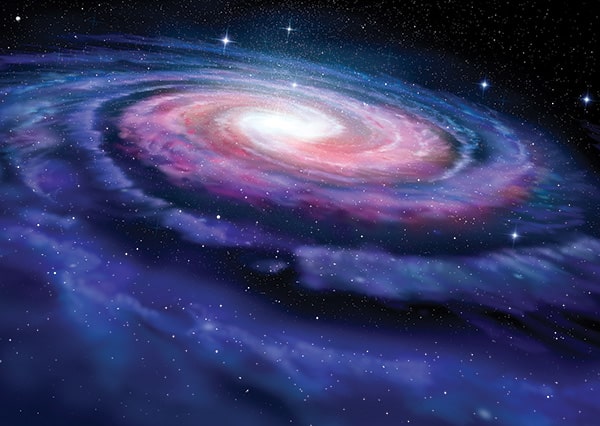 Birmingham astronomers were among a team of European scientists to discover evidence of elusive low frequency gravitational waves after studying data collected over two decades.
Birmingham astronomers were among a team of European scientists to discover evidence of elusive low frequency gravitational waves after studying data collected over two decades.
The discovery builds on the Nobel Prize-winning work previously conducted by international scientists, including researchers from Birmingham, which first detected gravitational waves in 2015.
Ultra-low frequency gravitational waves could reveal the best kept secrets of the Universe, including the formation of binary systems of supermassive black holes at the heart of distant galaxies — events that may have taken place when the Universe was just a few seconds old.
Scientists have been searching for these signals using six of the world’s most powerful radio telescopes, which monitor radio signals from rotating neutron stars, called pulsars.
The results may be the first direct evidence of giant black holes distorting space and time as they spiral in on each other.